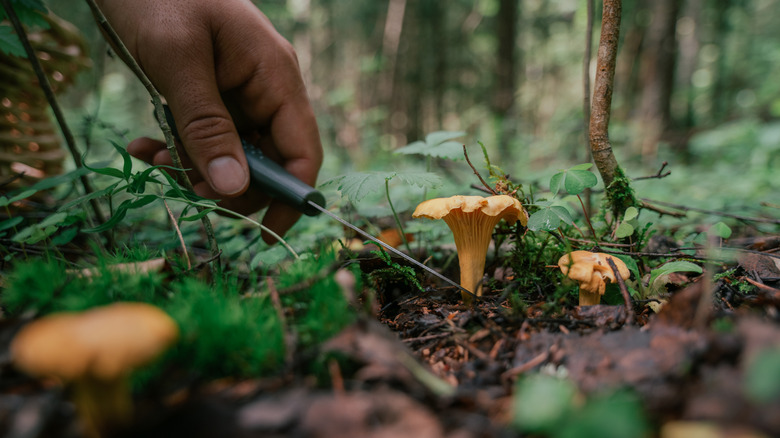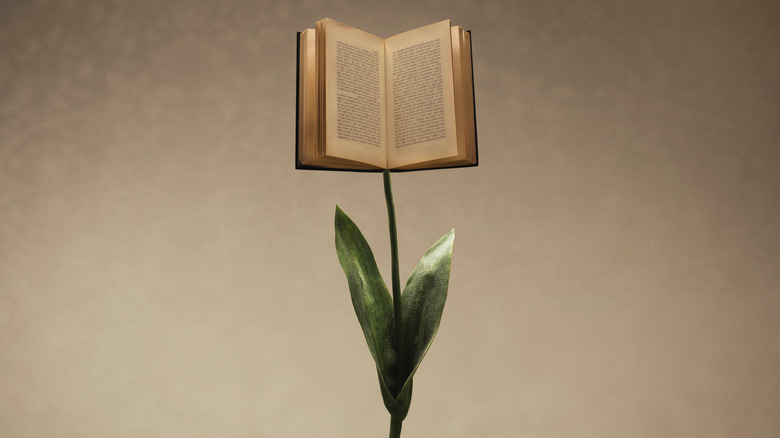Why TikTok's Queen Of Foraging Says The Cultural Context Of Food Is Important
Many people have a firm enough grasp on their own history to tell you where their great grandparents are from, and some have even submitted strands of their DNA to genetic testing kits that reveal centuries of their family tree (Your coworker is related to Henry V of England; your dad's best friend shares blood with the Japanese philosopher Hakuin Ekaku). With this knowledge of our lineage comes a greater awareness of our cultural impact. Those Americans whose families arrived in the US on the Mayflower, for example, have a vastly different social footprint than those whose ancestors arrived on slave ships. And if you ask Alexis Nikole Nelson — whose videos on botany, fungi, and edible plants have drawn over three million followers on TikTok alone, and who In The Know calls "arguably the most famous forager on social media" — the cultural context of the food we eat is just as important as our own history.
Nelson's unbridled enthusiasm for nature's bounty is irresistible, whether she's picking a cluster of invasive-yet-delicious garlic mustard greens, biting into a ripe persimmon, or making jerky out of mushrooms and tree bark. But the social media star's zeal for education doesn't stop at the basics of foraging. In a September 2021 video, she explains why understanding the link between food and culture (particularly race) is essential to being a conscious food consumer — especially in the United States.
Foods should exist with context
As a Black American content creator and forager, Alexis Nikole Nelson was vocal in a September 2021 interview with NPR about her interest in educating people about the fraught history of edible plants within Black communities. In response to negative Facebook comments on the article, Nelson put out a video the next day titled, "Let's talk about race and food."
"We need to talk about how none of our food — wild, grocery store, whatever — exists without context." She goes on, "To say that foraged food exists without any relation to race or culture is not only disrespectful to the indigenous folks who helped a lot of our ancestors learn the lay of the land, [but] it's also disrespectful to our ancestors who brought a lot of their plants over."
Regarding a comment from a white reader that expressed annoyance at Nelson's intent on examining the cultural origin of edible plants, Nelson explained, "A lot of our Black ancestors had foraging forcibly taken out of their hands by means of more strict trespass laws in the 1800s." Using examples like quinoa, tomatoes, and corn, Nelson concludes that foraging encourages consumers to think about all of the people involved in the food they eat. The next time you go picking blueberries or hunting for chanterelles, keep Nelson's lessons in mind.

